The 3rd Academic Conference on Computing and Simulation Technology in Civil Engineering, organized by Guangxi University, took place in Nanning on May 13th and 14th. Southern University of Science and Technology served as the co-host for this conference. The event witnessed the participation of 430 experts and scholars from universities, research institutes, and enterprises, among others.
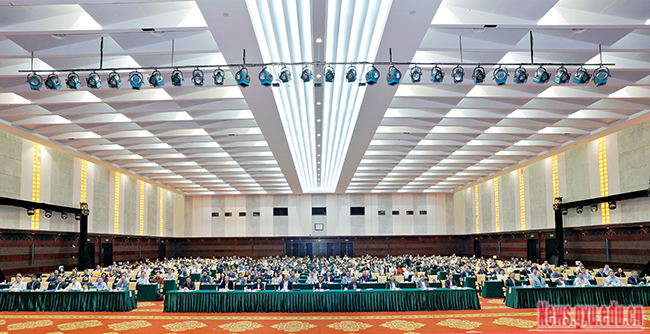
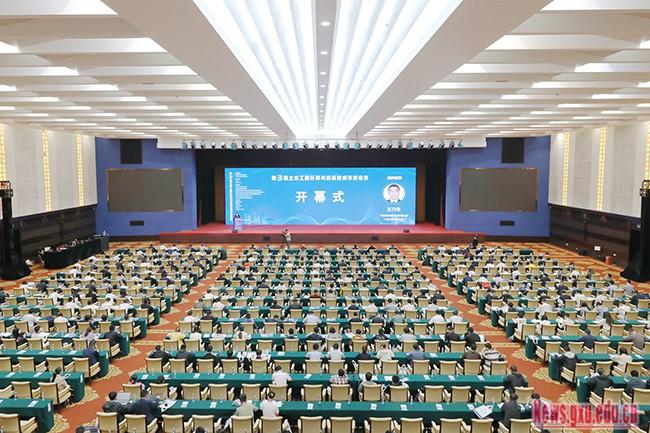
Mr. Wang Weiping, member of the standing committee and minister of the organization department of the CPC Guangxi Zhuang Autonomous Region Committee, met with professors and experts attending the conference. He expressed gratitude for their long-term concern and support for the development of Guangxi. He hoped that they would provide greater support and guidance to Guangxi in first-class disciplines, civil engineering technological breakthroughs, and the construction of state key laboratories jointly built by the province and the ministry. This support would help facilitate the implementation of Guangxi’s innovation-driven development strategy. Mr. Li Changguan, Vice Governor of the Guangxi Zhuang Autonomous Region, and Mr. Wang Naixue, Vice Chairman of the Autonomous Region Political Consultative Conference and the Secretary of the Party Committee of Guangxi University , Mrs. Wang Cuikun , Vice Chairman of the Architectural Society of China and Chairman of the Structural Engineering Branch and Mr. Zhu Qidong, Vice Chairman of the Guangxi Association for Science and Technology, and Mr. Teng Jinguang, Co-Chair of the Conference’s Academic Committee, President of The Hong Kong Polytechnic University and Academician of the Chinese Academy of Sciences, attended the opening ceremony and delivered their speeches. Mr. Han Linhai, Co-Chair of the Conference’s Organizing Committee and President of Guangxi University, presided over the opening ceremony. Mr. Chen Jianfei, Co-Chair of the Conference’s Organizing Committee and Professor at Southern University of Science and Technology, hosted the closing ceremony. Mr. Chen Yunmin, Co-Chair of the Conference’s Academic Committee, Dean of the Academic Committee of Zhejiang University, and Academician of the Chinese Academy of Sciences, attended the closing ceremony and delivered a speech. Mr. Zheng Jielian, Academician of the Chinese Academy of Engineering and Professor at Guangxi University, also attended the meeting.
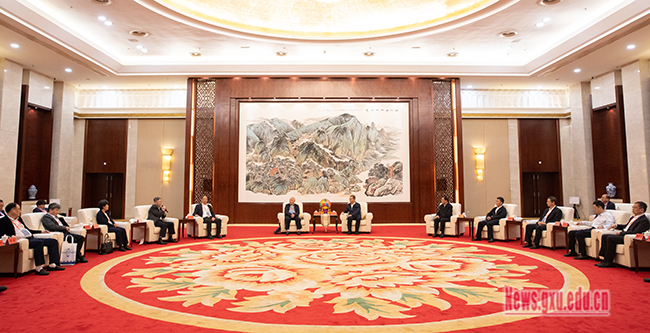
Mr. Wang Naixue expressed his gratitude to the attending academicians, experts, and distinguished guests for their care and guidance towards Guangxi University. He provided an overview of Guangxi University and its world-class discipline in civil engineering. Mr. Wang emphasized the urgent need to strengthen fundamental research as a means to achieve high-level scientific and technological self-reliance. Currently, with the accelerated development of interdisciplinary integration and profound changes in research paradigms, addressing fundamental research issues at their roots and conducting foundational research in computation and simulation within the field of civil engineering are crucial pathways to achieve scientific independence and strength in civil engineering research. He expressed the hope that academicians and experts would provide more guidance and assistance in the construction of the world-class discipline of civil engineering at Guangxi University, as well as contribute to the development of civil engineering computation and simulation technology. Together, they aim to propel the efficient, high-level, and high-quality development of the civil engineering industry in China.
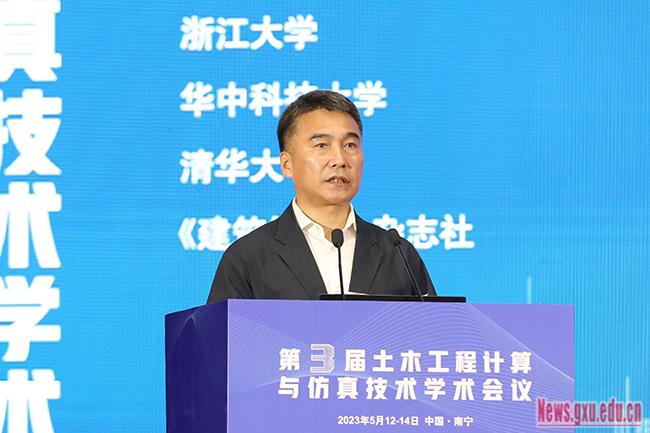
In a retrospective overview, Mrs. Wang Cuikun highlighted the historical progression of the academic conference on Civil Engineering Computation and Simulation Technology, as well as the evolution of the Architectural Society of China. She emphasized that the Architectural Society of China’s branch dedicated to architectural structures has long been committed to advancing interdisciplinary academic research, recognizing the pivotal role of computation and simulation technology as an empowering element in structural engineering. With the continuous development of artificial intelligence, the significance of computational analysis in shaping the future of the industry will be further magnified. To leverage their professional expertise, it is essential to enhance scientific and technological innovation and overcome the critical core technological bottlenecks in civil engineering computation and simulation. This will pave the way for high-quality development in civil engineering. Attention must be intensified towards the safety of existing building structures and the analysis of simulations. Further simulation analysis of the architectural structures of existing buildings will contribute to socio-economic progress.
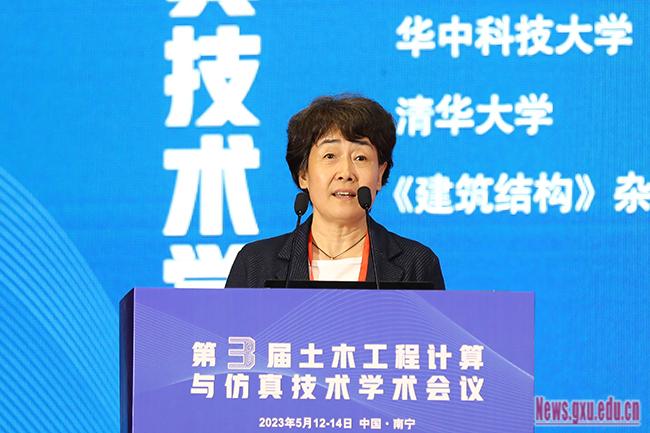
Mr. Zhu Qidong highlighted the importance of embracing the “Four Orientations” for the development of scientific endeavors in his speech. He emphasized that the focus of this conference is the convergence of digital science and civil engineering disciplines. This convergence plays a crucial role in facilitating the transformation of civil engineering towards digitization and modernization, providing vital technological support for the construction of large-scale, high-strength, low-energy-consumption, and intelligent architectural projects. Additionally, it serves as a catalyst for the development of the new land-sea transit route for the western region. Mr. Zhu expressed the commitment of the Guangxi Association for Science and Technology to act as a bridge and facilitator, fostering academic exchanges and scientific research. He encouraged the attending academicians, experts, and scholars to actively contribute their insights and ideas, expediting scientific and technological progress in Guangxi and driving high-quality development through innovative advancements.
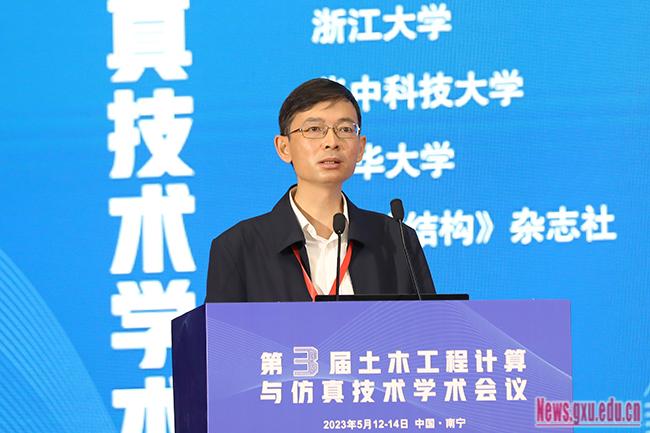
In his speech, Mr.Teng Jinguang congratulated the holding of the Third Academic Conference on Computing and Simulation Technology in Civil Engineering in Nanning. Besides, Mr. Teng shared his understanding of calculation, analysis and simulation based on his own research experience. He hoped to strengthen ties between Hong Kong and Guangxi, enhance exchanges in civil engineering between two sides, and jointly carry out cooperative research on long-span arch bridges.
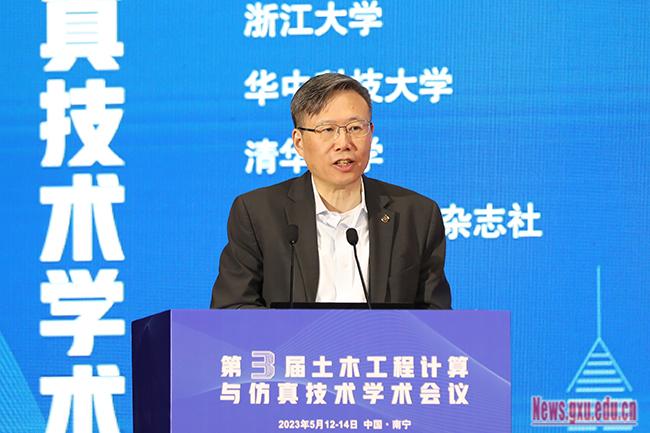
According to the content and theme of his speech, combined with the frontier of civil engineering discipline, Mr.Chen Yunmin expressed his expectation for the development of civil engineering to the interdisciplinary fields of informatization and intelligence. He hoped that the conference would attract more experts and scholars engaged in cutting-edge civil engineering research to discuss and exchange ideas, contributing to the high-quality development of civil engineering discipline.
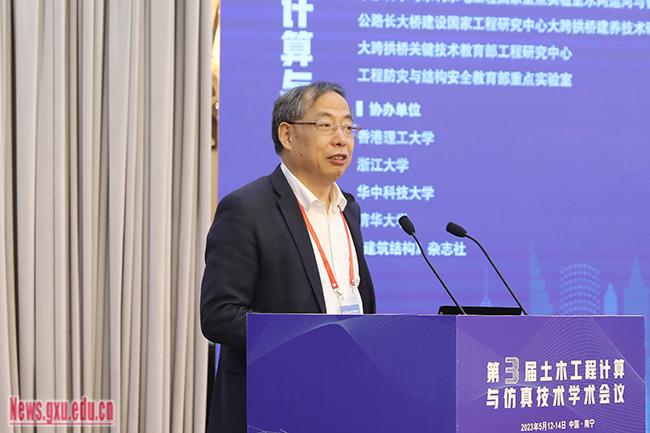
The two-day conference contained three parts: theme report, invited report and group report, mainly about the calculation and simulation in the field of civil engineering. Academician Zheng Jielian, Chen Yunmin and Teng Jinguang delivered keynote reports entitled “Practice and Innovation of Super Long-Span Arch Bridge”, “Constitutive Model Research of Granular Crushing Soil” and “Finite Element Analysis of Confined Concrete Components” respectively. Professor Han Linhai and other experts and scholars of our university gave 18 special reports. In addition, the conferences also set up 9 sub-sessions and 1 software special forum, holding a total of 42 group invited reports and 122 group reports. The “Abstracts of Papers of the Third Academic Conference on Computing and Simulation Technology in Civil Engineering” was published on this conference. The participating academicians and experts discussed the development of key technologies and platforms of civil engineering computing and simulation, and reported in groups the research and practice of intelligent construction, machine learning, digital twin, industrialization of construction industry and other emerging fields of civil engineering.
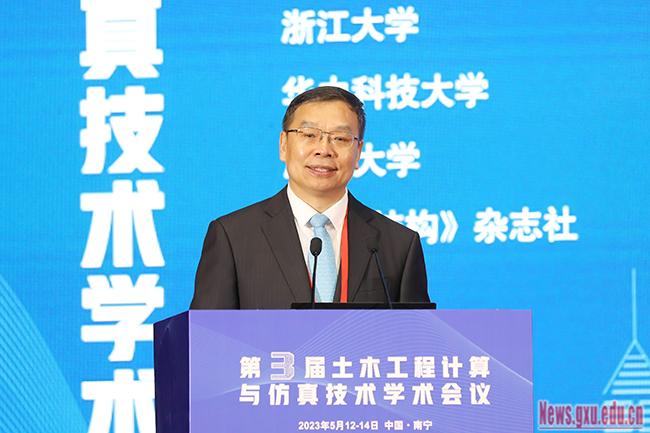
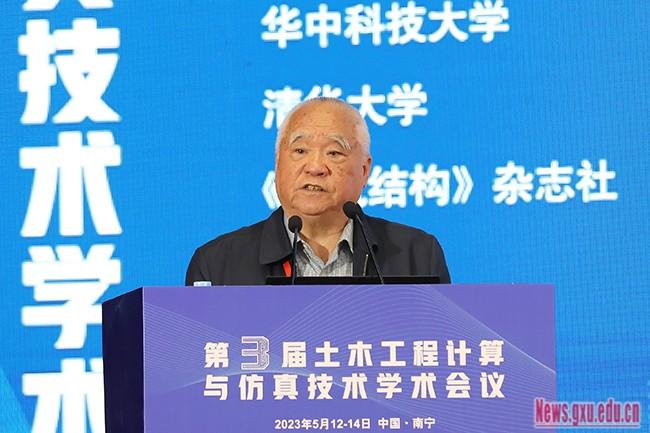
Ma Shaojian, member of the Standing Committee of the Party Committee and vice President of Guangxi University, and officials of Guangxi Communications Investment Group and Pinglu Canal Group attended the opening ceremony. Feng Jiaxun, vice President of Guangxi University, attended the relevant activities. The conference was organized by the Research Institute of New Western Land-sea Corridor, State Key Laboratory of Guangxi University, the Research Center of Water Network Canal and Intelligent Construction of the State Key Laboratory of Water and Sediment Science and Water Conservancy and Hydropower Engineering, the Research Center of Long-span Arch Bridge Construction and Maintenance Technology of the National Engineering Research Center of Highway Long Bridge Construction, the Engineering Research Center of Key Technology of Long-span Arch Bridge of the Ministry of Education, Key Laboratory of Engineering Disaster Prevention and Structural Safety of Ministry of Education, and co-organized by Hong Kong Polytechnic University, Zhejiang University, Huazhong University of Science and Technology, Tsinghua University and a magazine named Building Structure.
The conference was jointly initiated by Professor Teng Jinguang and Professor Chen Yunmin, academicians of Chinese Academy of Sciences. It is the first national conference on computing and simulation in civil engineering in China. The previous two conferences were held in Wuhan and Beijing in 2019 and 2021, respectively. The fourth conference will be hosted by Zhejiang University.
 Home
>
News & Events
>
News
Home
>
News & Events
>
News
 Home
>
News & Events
>
News
Home
>
News & Events
>
News




